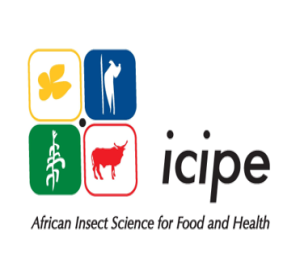Headquartered in
Nairobi, Kenya, icipe was established in 1970, to address
this very paradox of insects and accompanying challenges. The Centre’s mission
is to use insect science for sustainable development, to ensure food security,
and improve the overall health of communities in Africa by addressing the
interlinked problems of poverty, poor health, low agricultural productivity,
and environmental degradation.
Since its
founding, icipe has remained committed to developing and
disseminating environmentally safe, affordable, acceptable, and accessible
tools and strategies to control insect pests and disease vectors. icipe’s
mandate further extends to the sustainable conservation and utilization of
Africa’s rich biodiversity.
icipe is the only international institution in Africa working primarily on arthropods. Therefore the capacity building of individual researchers and institutions in Africa is an integral part of all the Centre’s research and development activities. icipe also aims to empower women, harness the youth, and build capacity to use, transfer, and teach the Centre’s technologies.
Vision
The Centre's
vision is to pioneer global science in entomology, to improve the well-being
and resilience of people and the environment to the challenges of a changing
world, through innovative and applied research, alongside deep exploratory
study, impact assessment, evaluation, and sustainable capacity building
Mission
icipe's
mission is to help alleviate poverty, ensure food security and improve the
overall health status of peoples of the tropics, by developing and extending
management tools and strategies for harmful and useful arthropods, while
preserving the natural resource base through research and capacity building.
- The 4H (ealth)s paradigm, is a holistic and integrated approach that encompasses human, animal, plant, and environmental health.
- Multiple discipline approaches, which bring together entomologists and acarologists, behavioral biologists, molecular biologists and biochemists, population and ecosystem ecologists, biomathematics and bioinformatics specialists, entomopathologists, biosystematics experts, and social scientists and trainers.
- Collaborations: icipe’s research is undertaken through close and effective partnerships with national, regional, and international organizations. Through these partnerships and collaborations, icipe’s ultimate goal is to strengthen the Centre’s capacity and that of its partners towards improving the livelihoods of millions of people in Africa.
- Enabling smallholder farmers, on whom most agricultural activity in Africa depends, access the appropriate technologies and strategies to address existing and emerging constraints. It is the home base for researchers and scientists from Europe, Africa, and Latin America; it creates a globalized ‘research family’.
icipe signed a grant contract with KALRO as a Co-applicant to implement the project entitled “Improving beekeeping in Arid and Semi-Arid Lands in Kenya” under the AgriFI Kenya CS APP Result area. New drought-resistant and more yielding climate-smart technologies developed. The focus is to address specific productivity constraints, facing farmers and whose solution will unlock farmer integration in commodity markets. To achieve the overall goal, the following specific objectives aim to be achieved:
- To Identify and document Bee Management Practices and use them for capacity building.
- To conduct participatory on-farm research for analysis of hive type suitability incl. establishment of floral calendar.
- To develop a Model for optimal harvest according to weather conditions.

